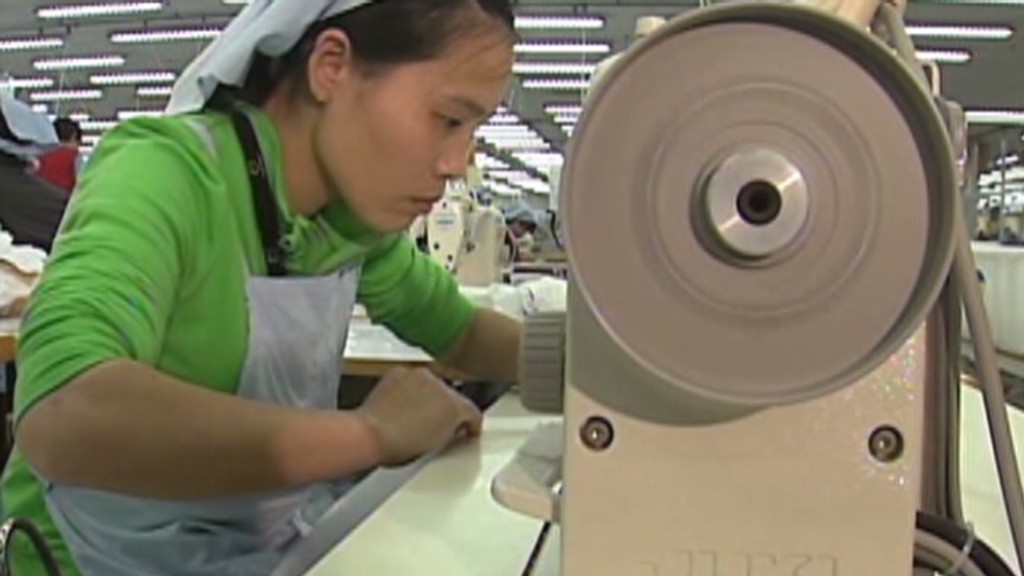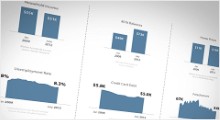
Is U.S. trade better now than it was four years ago?
Like so many economic issues swirling around this year's presidential election, the answer is not clear cut.
In the interconnected global economy, trade is becoming ever more important to the average American worker. Exports can provide jobs in fields from agriculture to aircraft, from movies to manufacturing. Conversely, U.S. industries face increasing competition from imports, forcing the weaker companies out of business.
Here are three of the main trade issues that are shaping the debate.
Exports and the trade gap
U.S. exports have risen steadily during the Obama administration. U.S. companies exported $1.3 trillion in goods and services during the first seven months of 2012, putting it on pace to top last year's record setting total. The increase in sales came even as the European sovereign debt crisis has cut the demand for U.S. goods and services in that key market.
But our imports have also grown. The trade gap -- the difference between the value of exports and imports -- has risen each of the last two years and is on pace to be even higher this year.
The trade gap is a major drag on the economy. And while the current gap is smaller than it was in the last five years of the Bush administration, it's tough for the Obama administration to take a victory lap. Today's narrower gap is greatly due to weak consumer demand for imported goods and oil, rather than exports being boosted by any specific trade policy.
"A lot of the trade record is determined by forces outside the power of the administration to affect," said Jay Bryson, international economist for Wells Fargo Securities. "It depends on what is happening in the rest of the world."
Trade with China
The trade gap with China, the nation's most important -- and controversial -- trading partner, widened to a record $280 billion last year, and is on pace to get even bigger this year.
The Obama administration can point to some victories regarding China. This includes getting Beijing to let its currency, the yuan, rise in comparison to other currencies, rather than keeping it pegged to the dollar.
That has reduced one of the key advantages Chinese exporters have when competing with U.S. companies: when the yuan is undervalued, it drives down the cost of Chinese goods, giving those goods an advantage in the marketplace.
Since China loosened the peg to the dollar, the yuan has gained nearly 8% in value. The Peterson Institute for International Economics estimated in May that the Chinese yuan was undervalued by only 7.7%, compared to 28.5% a year earlier.
The Obama administration also says it's getting tough on China. It has filed more trade cases against China than did the Bush administration, winning fights to protect a number of industries, such as tires.
Bryson said he gives Obama a "B" for his trade policy, saying that the president was able to push China on trade issues without starting a trade war.
But critics of U.S. trade policy with China say more is needed, even if it sparks retaliation.
Republican presidential candidate Mitt Romney has said he would declare the country to be a currency manipulator, which would subject it to trade sanctions under U.S. law. He also would take steps to block government purchases of Chinese goods.
"President Obama is offering none of the new trade policy thinking that the economy urgently needs," said Alan Tonelson, research fellow at the U.S. Business and Industry Council, a trade group of 2,000 smaller manufacturers who want more protection from Chinese exports here. "Gov. Romney is offering some of it."
Free trade agreements
Despite some opposition from his allies in labor, Obama won Congressional approval of free trade deals with South Korea, Colombia and Panama reached before he took office, and he has continued the Bush administration's effort to form a trans-Pacific free trade zone.
Romney criticizes him for not doing more to increase free trade agreements saying he has not started or concluded any trade deals of his own.
Economists who study global trade say that despite his stated goal of doubling exports between 2009 and 2014, it's been a tough environment for the president to make trade deals a major priority.
"This has been one of the quietest presidencies for trade policy since in the post [World War II] period," said Gary Hufbauer, senior fellow at Peterson Institute for International Economics. "He had other priorities, such as dealing with the Great Recession and health care. It takes a lot of capital to get trade deals through Congress, and it's particularly tough to do when the economy is weak."



